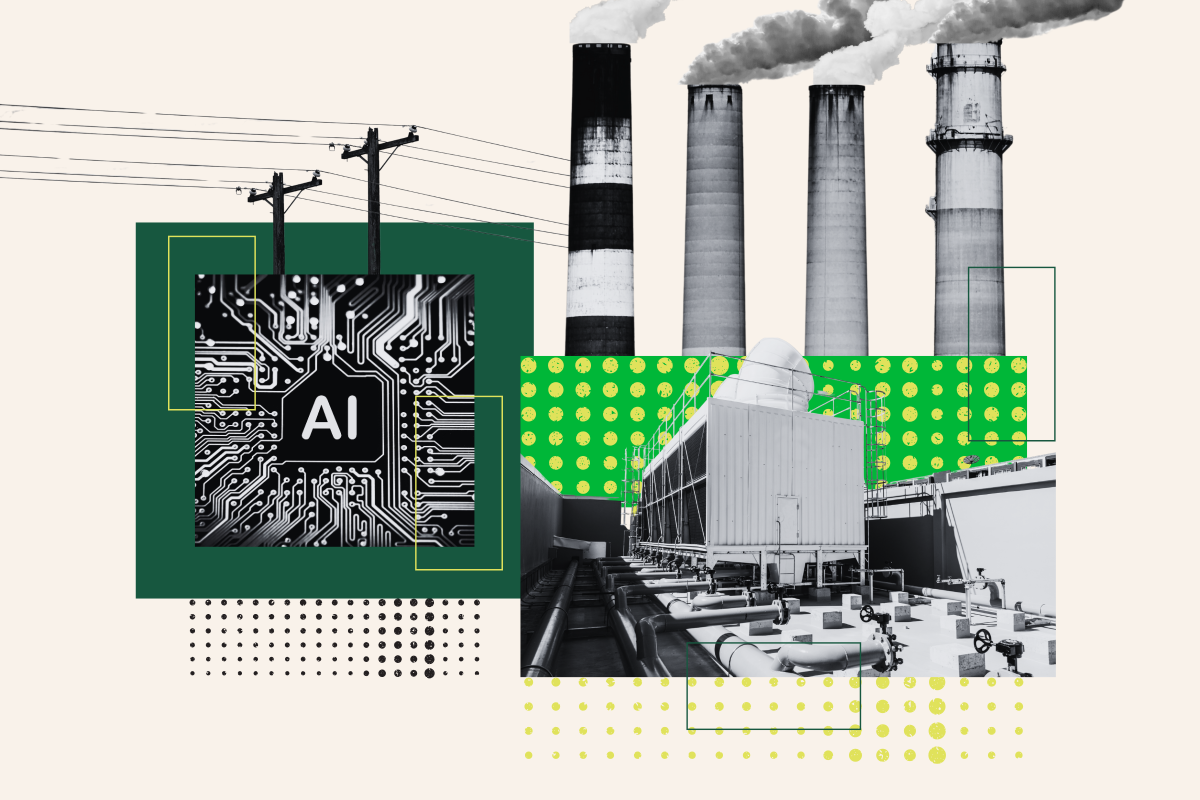As concerns about the voracious energy needs for artificial intelligence grow, a new online tool unveiled Monday provides a first-of-its-kind evaluation of the energy use and environmental impact of AI models.
AI Energy Score is intended to let software developers, companies and other AI users compare the energy profiles of different AI tools, do some comparative shopping and make decisions informed by the ranked sustainability scores of AI options.
Salesforce, the customer-relationship management technology company, launched the product at an international AI Action Summit in Paris. Salesforce Senior Manager of Emissions Reduction Boris Gamazaychikov said the tool will help people at a range of companies who are tasked with meeting climate and sustainability targets.
"The sustainability officers are kind of in a bind right now, there isn't a lot of transparency yet with these external models," Gamazaychikov told Newsweek. "They're seeing their companies use kind of these black box models and not really know what kind of impact that's going to have on their carbon footprint."

AI Energy Score offers standardized energy ratings for a model's energy efficiency. A public "leaderboard" features the best efficiency score for some common AI tasks such as creating images, summarizing notes and generating text. The tool also offers an easily recognizable star rating system to allow people to identify the best performing models.
Salesforce developed the tool in partnership with Canadian AI company Cohere, Carnegie Mellon University and technology platform company Hugging Face.
Sasha Luccioni, AI and climate lead for Hugging Face, has worked for years to better understand AI's energy consumption. Last fall, she told Newsweek she hoped to develop something akin to the popular Energy Star rating system that helps consumers choose the most efficient appliances. With AI Energy Score, she and her colleagues have done that.
"Part of that problem is that AI is such an umbrella term that people don't really know what we're talking about," Luccioni told Newsweek just before the product's release.
AI requires massive computing power at data centers for both the training of the models and the many individual uses of the model, called inferences.
By measuring and scoring the energy required for specific uses, she said, the tool gives people a more concrete understanding of energy efficiency.
"I think it makes sense to focus on the consumer angle, the downstream usage of models," she said.
The "apples to apples" comparison of tasks in a standardized framework, Luccioni said, might also encourage tech companies to be more transparent with data on energy consumption.
"I think it's going to help companies open up a little," she said.
The AI boom is pushing energy demand for data centers higher. A December report from the Department of Energy found that data center energy use could triple by 2028, growing to consume up to 12 percent of the country's total electricity output.
The greenhouse gas emissions resulting from that energy demand and the buildout of data centers knocked some tech giants such as Microsoft and Google off target for their climate goals, and the rising energy demand threatens to increase other pollution as well.
Another study published in December found that as AI grows, it will also increase the health burden from air pollution unless data centers use cleaner sources of power.
Gamazaychikov said he hopes that AI Energy Score will bring greater attention to AI's energy use and nudge tech companies toward more sustainable practices.
"That's kind of the big swing, the big hope with all this," he said. "We are trying to tackle it from that perspective, trying to drive transparency and thus more efficiency in the space."
Newsweek is hosting the first AI Impact Awards this year to recognize the best use of AI to solve practical problems in a range of areas, including sustainability. Entries are open until April 25, and finalists and winners will be announced in late May ahead of the AI Impact Summit in June.
Update 2/10/2025, 2:40 p.m. ET: This article was updated to remove a reference to Meta as a partner in the AI Energy Tool. A Salesforce representative said they had incorrectly included Meta among the developers.
About the writer
Jeff Young is Newsweek's Environment and Sustainability Editor based in Louisville, Kentucky. His focus is climate change and sustainability with an ... Read more



